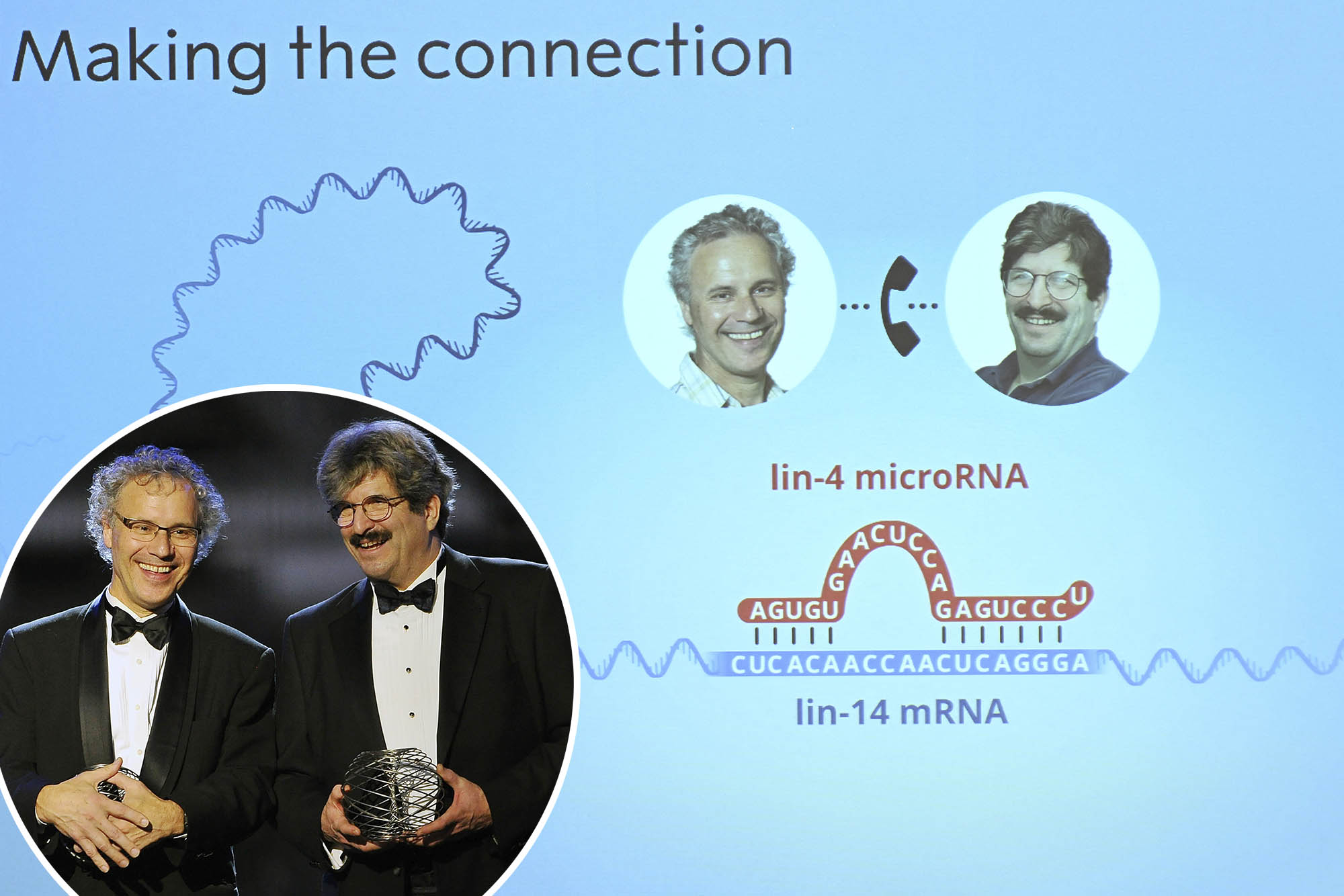
STOCKHOLM – The Nobel Prize in physiology or medicine was awarded on Monday to Americans Victor Ambros and Gary Ruvkun for their discovery of microRNAs, small pieces of genetic material that change the way genes work at the cellular level and can lead to new ways of cancer treatment.
The Nobel Assembly at the Karolinska Institute, which awarded the prize, said the pair’s discovery “is proving to be fundamentally important” to understanding how organisms develop and function.
MicroRNA has opened up scientists’ approaches to treating diseases such as cancer by helping to regulate how genes work at the cellular level, according to Dr. Claire Fletcher, a lecturer in molecular oncology at Imperial College London.
Fletcher said that microRNA provides genetic instructions to tell cells to make new proteins, and that there were two main areas where microRNA could be useful: in developing drugs to treat disease and in serving as a biomarker.
“MicroRNA changes the way genes work in the cell,” said Fletcher, who is an outside expert not affiliated with the Nobel Prize.
“If we take the example of cancer, we will have a particular gene that is working overtime, it can be mutated and work in overdrive,” she said. “We can take a microRNA that we know changes the activity of that gene, and we can deliver that particular microRNA to cancer cells to stop that mutated gene from having its effect.”
Ambros conducted the research that led to his award at Harvard University. He is currently a professor of natural sciences at the University of Massachusetts Medical School. Ruvkun’s research was conducted at Massachusetts General Hospital and Harvard Medical School, where he is a professor of genetics, said Thomas Perlmann, Secretary General of the Nobel Committee.
Perlmann said he spoke with Ruvku by phone shortly before the announcement.
“It took a long time for him to come on the phone and he looked very tired, but he quickly became excited and happy when he realized what it was about,” Perlmann said.
Last year, the Nobel Prize in Physiology or Medicine went to Hungarian-American Katalin Karikó and American Drew Weissman for discoveries that enabled the creation of mRNA vaccines against COVID-19 that were critical in slowing the pandemic.
The prize carries a cash prize of 11 million Swedish kroner ($1 million) from a legacy left by the prize’s creator, Swedish inventor Alfred Nobel.
The announcement kicked off this year’s Nobel Prize season.
The Nobel announcements continue with the physics prize on Tuesday, chemistry on Wednesday and literature on Thursday. The Nobel Peace Prize will be announced on Friday and the Nobel Memorial Prize in Economic Sciences in October. 14.
Laureates are invited to receive their awards at ceremonies in December. 10, the anniversary of Nobel’s death.
Fletcher said there are ongoing clinical trials to see how microRNA approaches can help treat skin cancer, but that there are no drug treatments yet approved by drug regulators. She expected that could happen in the next five to 10 years.
She said that microRNA represents another way to be able to control the behavior of genes to treat and track various diseases.
“Most of the therapies we have right now target proteins in cells,” she said. “If we can intervene at the microRNA level, it opens up a whole new way for us to develop drugs and for us to control the activity of genes whose levels can change in disease.”
___
Corder reported from The Hague, Netherlands, Cheng reported from London.
#Nobel #Prize #Medicine #honors #American #duo #discovery #microRNA
Image Source : nypost.com